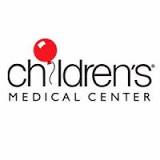Safety of Immunosuppression Minimization in Children and Adolescents After Kidney Transplantation
| Status: | Archived |
|---|---|
| Conditions: | Renal Impairment / Chronic Kidney Disease, Infectious Disease |
| Therapuetic Areas: | Immunology / Infectious Diseases, Nephrology / Urology |
| Healthy: | No |
| Age Range: | Any |
| Updated: | 7/1/2011 |
| Start Date: | May 2009 |
Immunosuppression Minimization to Single Drug Therapy With Sirolimus (Rapamune) in Pediatric Transplantation
Kidney transplantation is widely considered to be the treatment of choice for children with
End Stage Renal Disease (ESRD). The purpose of this study is to determine the safety of
sirolimus monotherapy for long-term immunosuppression in children and adolescents after
kidney transplantation.
Improvements in surgical techniques, donor selection, immunosuppression practices, and the
enhanced experience of specialized pediatric transplant teams have all led to marked
improvements in patient and kidney graft survival in infants and young children Long-term
graft survival rates decrease in adolescents 11 to 17 years of age. Several studies have
suggested this decrease may be the result of noncompliance with immunosuppressive
medications in this age group. Therefore, protocols that minimize the use of
immunosuppressive medications, while retaining kidney function are necessary for improving
graft and patient survival in children. The purpose of this study is to determine the
safety of sirolimus monotherapy for long-term immunosuppression in children and adolescents
after kidney transplantation.
This study will enroll 10 participants who previously completed the CCTPT-PC01 study. The
accrual period is scheduled for 12 months. The study follow-up period will last 96 weeks.
Patients from the CCTPT-PC01 study have been maintained on sirolimus and mycophenolate
mofetil (MMF) since 2-3 months post transplant. Enrolled participants receiving (MMF) or
Azathioprine at study entry will have their doses withdrawn gradually over a period of 6
months. Dosage will be reduced by 25% initially and by 25% every 2 months resulting in
complete withdrawal by 6 months.
This study will consist of 11 study visits after screening and study entry. Study visits
will occur at weeks 1, 8, 16, 24, 32, 40, 48, 60, 72, 84, and 96. A physical exam, vital
signs, sirolimus levels, as well as blood and urine collection will occur at all visits. A
renal biopsy will be performed at week 96.
We found this trial at
4
sites
4800 Sand Point Way Northeast
Seattle, Washington 98105
Seattle, Washington 98105
(206) 987-2000

Children's Hospital and Regional Medical Center - Seattle Seattle Children
Click here to add this to my saved trials
9300 Valley Children's Pl
Madera, California 93720
Madera, California 93720
(559) 353-3000

Children's Hospital Central California The Children's Hospital Central California is a not-for-profit, state-of-the-art children’s hospital...
Click here to add this to my saved trials
Children's Medical Center of Dallas Children's Medical Center is private, not-for-profit, and is the fifth-largest...
Click here to add this to my saved trials
Click here to add this to my saved trials
